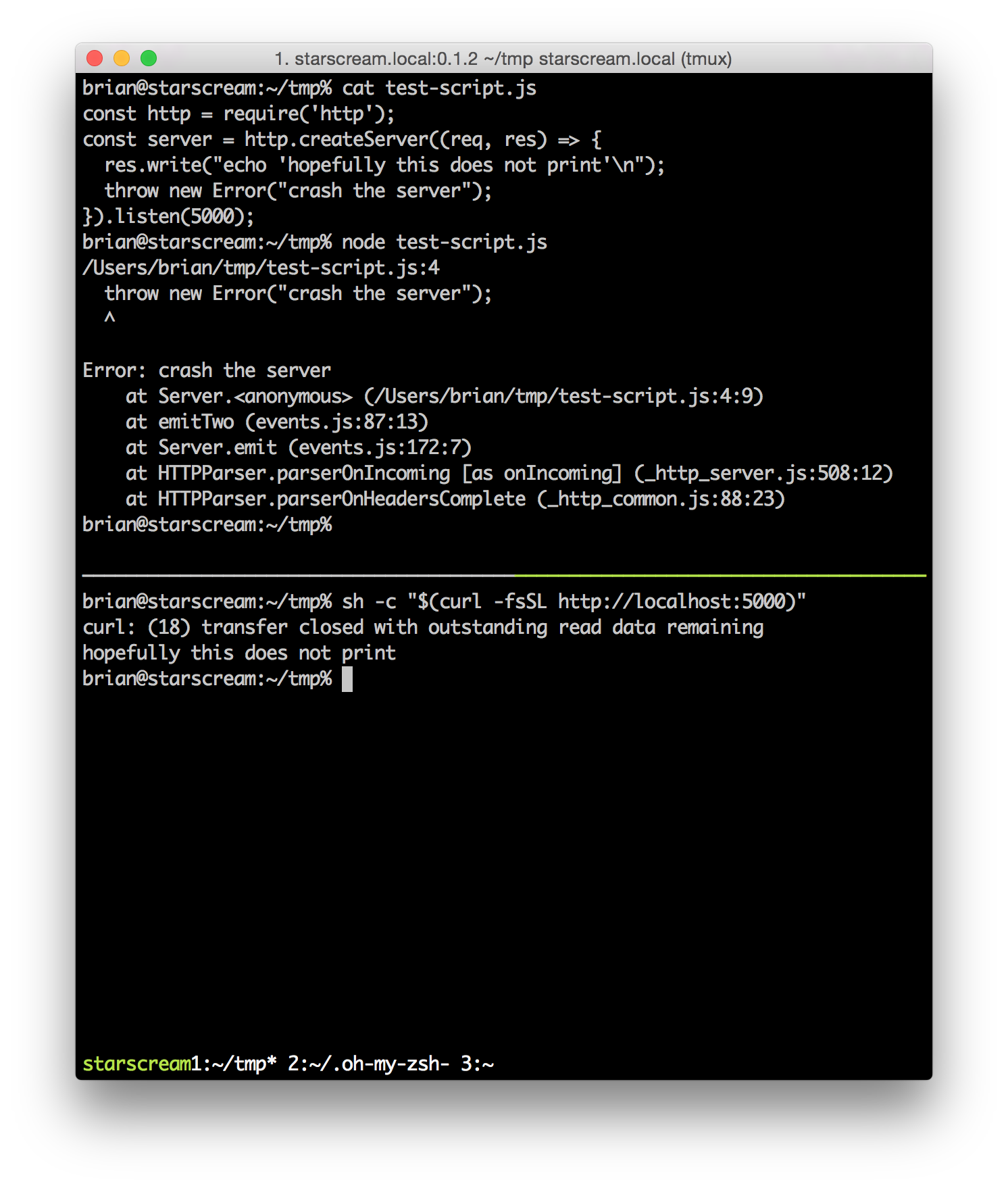This facilitates testing of changes to the core installation code: you'll be
able to do a roundtrip test of install and uninstall using the working code on
your branch.
Controlled by passing $REPO and $BRANCH environment variables to install.sh.
This changes the behavior to default to the binary found first in $PATH,
then checking it's actually in the shells file (/etc/shells).
If that fails go back to the previous behavior, but actually check that
the path obtained exists in the filesystem.
Co-authored-by: Joel Kuzmarski <leoj3n@gmail.com>
This replaces the currently running process with the new one using `exec`
instead of creating a new process. This way, when the user `exit`s out of
the new shell it will not pop them back into the shell from which ohmyzsh
was installed from.
* Updating Oh My Zsh shop URLs
Linking directly to the Oh My Zsh inventory vs the top-level store with non-OMZ items.
* Updating link to Oh My Zsh products in the install script
* Updating link to Oh My Zsh shop products in the upgrade script
* Getting rid of 't-' in shirts for now
This changeset wraps all of the commands in tools/install.sh in a
function and then calls that function as the last line of the
script.
The current install instructions ask the user to download the install
script using `curl` and pass the result to `sh`. This is totally
fine (as long as both the instructions and the script itself are served
using HTTPS), but the script should be written in a way such that it
doesn't start trying to actually *do* anything until the very last line.
The reason is due to the way `curl` work: if the socket drops before the
request is complete (server abruptly hangs up, client's internet flakes
out, etc.), `curl` will return the partial data that it received. Here
is an example of that:

A way this might cause issues for tools/install.sh is if the connection drops
after cloning but before the repository (L53-56). The .zshrc
configuration will not be copied and the shell will not be changed, but
if the user tries to run the install script again it will claim
oh-my-zsh is already installed (L31-39).
While this is not a particularly dangerous error condition (the user can
just delete .oh-my-zsh and re-run), it can certainly be confusing for
new users. This also helps future-proof the script for a time when it
might need to use a "dangerous" command, e.g. `rm`, and we want to make
sure it happens in the most transactional way possible.
@fcrozat's original fix assumes `which` not to output anything to STDOUT
in case the command is not found. That is not necessarily true on all
systems. A better solution is to check the return value instead.
Fixes#4376
* Balk at incompatible Windows/MSYS git
* Test for chsh presence before trying to use it
* Replace non-portable `[[ ... ]]` and `[ x = *pattern* ]` constructs
Check if Zsh is installed before installing anything else.
New-commers, or people who don't read the disclaimers(ex. me) will go
straight to stack overflow if chsh -s returns an error.
Installation previously assumed the existence of a "chsh" command in the current
${PATH}. Since Cygwin does *NOT* provide this command, installation now tests
for the existence of this command before attempting to run it.